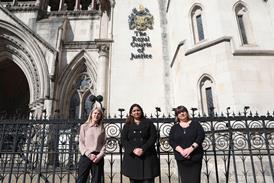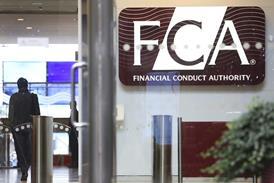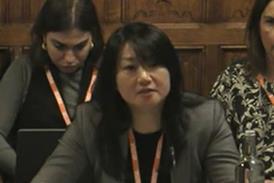Decisions filed recently with the Law Society (which may be subject to appeal)
Gladstones Limited
Application 12265-2021
Hearing 8 December 2021
Reasons 14 December 2021
The SDT ordered that the respondent should pay a fine of £15,000.
The respondent firm used a client account suspense ledger to record the receipt of payments from third party debtors that it was unable to allocate to specific client matters. As at 30 June 2020, the client account suspense ledger recorded receipts totalling £106,003.41 which related to payments made by third-party debtors to the respondent’s automated payment line. The respondent subsequently delayed in investigating the unallocated payments in the suspense ledger which resulted in: the respondent issuing proceedings and obtaining a county court judgment against at least one third-party debtor who had already settled their debt with it, and the respondent being unable to refund third-party debtors in the total sum of £35,582.22, that sum ultimately being paid to a charity.
As a result of the above the respondent had acted in breach of any or all of the following: up to 25 November 2019, principles 6 and 8 of the SRA Principles 2011 and from 25 November 2019, principle 2 of the SRA Principles 2019; up to 25 November 2019, rule 29.25 of the SRA Accounts Rules 2011; and from 25 November 2019, rule 2.1 of the 2019 SRA Code of Conduct for firms.
The parties invited the SDT to deal with the allegations against the respondent in accordance with a statement of agreed facts and outcome.
The SDT was satisfied that the misconduct fell at the top end of level 3 in that it was ‘more serious’. In those circumstances, the proposed sanction of a fine of £15,000 was appropriate.
The respondent was ordered to pay costs of £15,000.
Michael Vaughan
Application 12257-2021
Admitted 1975
Hearing 10-11 January 2022
Reasons 2 February 2022
The SDT ordered that the respondent should pay a fine of £3,000.
While in practice as a solicitor for Kingsley Berney Limited, the respondent had provided banking facilities through a client account, in that he had allowed payments into, and transfers and withdrawals from, a client account that were not in respect of instructions relating to an underlying transaction or to a service forming part of his normal regulated activities, contrary to rule 14.5 of the Solicitors Accounts Rules 2011 and principle 6 of the SRA Principles 2011.
He had become involved in dubious financial arrangements, thereby breaching principles 2 and 6. He had acted recklessly.
His motivation was to take advantage of an opportunity to generate business and fees for the firm from a new area of work which was not complex. The failing was characterised more as a failure to carry out his obligations diligently rather than a breach of trust.
The respondent was not experienced in the relevant areas of law, but he was a COLP and COFA and so had an obligation to inform himself about and be alert to signs indicating the potential for fraud and to respond appropriately. He had not misled the regulator, but his culpability was high.
While it seemed that the client money had been recovered in full, the fact that it had required proceedings to recover it in some cases had involved harm, and the harm to the reputation of the profession caused by an experienced solicitor failing to take necessary steps to ensure client money was safeguarded against possible fraud was significant.
The misconduct was very serious. The SDT had found that the respondent’s actions had lacked integrity. A substantial fine of £15,000 was appropriate. However in view of the statement of the respondent’s means, the SDT had applied an 80% reduction to the fine of £15,000 and determined that a fine of £3,000 should be imposed on the respondent.
The respondent was ordered to pay costs of £6,160.
James S Barnett
On 3 March 2022, a single adjudicator resolved to intervene into the remnants of the above-named former sole practice of the late Dr James Snowdon Barnett, formerly at The Pavilion, 10 Inkpen Road, Kintbury, Hungerford RG17 9TU.
The firm closed on 30 September 2014.
Dr Barnett died on 28 September 2019.
The grounds of intervention were: it was necessary to intervene to protect the interests of clients or former clients and any beneficiaries of any trust of which Dr Barnett was a trustee – paragraph 1(1)(m) of Schedule 1 to the Solicitors Act 1974 (as amended).
No intervention agent has been appointed. The SRA will be making the necessary arrangements to collect the remaining practice papers.


























